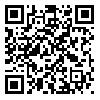Volume 2, Issue 157 (7-2019)
J Except Educ 1398, __(157): 21-38 |
Back to browse issues page
Download citation:
BibTeX | RIS | EndNote | Medlars | ProCite | Reference Manager | RefWorks
Send citation to:



BibTeX | RIS | EndNote | Medlars | ProCite | Reference Manager | RefWorks
Send citation to:
Ebrahimi A. Counseling Approaches for consultation with parents of deaf children: Audiologist Guide. J Except Educ 2019; 2 (157) :21-38
URL: http://exceptionaleducation.ir/article-1-1298-en.html
URL: http://exceptionaleducation.ir/article-1-1298-en.html
organization for Educational research and Planing , mahyarebarhimi@yahoo.com
Abstract: (4303 Views)
Most audiologists who entered the field do not receive specific training in counseling and were given little guidance on how to communicate effectively every clients. Although it is an integral part of clinical practice, counseling in audiology is only now beginning to evolve into a well-defined and systematic process. Audiologists as nonprofessional counselors can help patients who are angry, hostile, depressed, or anxious about how their hearing loss is affecting their lives.
Very different approaches to counseling do exist, approximately 400 and this number has continued to rise. This approaches fall into four main categories:1) cognitive/rational, 2) behavioral, 3) affective/humanistic, and 4) eclectic. As there is no one theory or therapy approach fits all situations, and a clinician may actually apply multiple therapy approaches with any one client, patient, or family. The theoretical and therapy approaches that an individual clinician selects and uses often depends on the clinician’s personal orientation (e.g., humanistic, behavioral), what the clinician has learned in her training, and what has worked for the clinician in the past. There is no one “right” theoretical or therapeutic framework, although empirical research during the last couple of decades has provided more validation for some therapeutic approaches than for others.
As audiologists working with a wide variety of hearing, speech, language, cognitive disorders of individuals of all ages, they need to be able to draw upon concepts, strategies, and techniques from a variety of counseling frameworks to communicate effectively with their clients, patients, and their families. This Article review of each of these approaches is provided to expose the audiologist to the options available when counseling deaf/hard of hearing parents.
Very different approaches to counseling do exist, approximately 400 and this number has continued to rise. This approaches fall into four main categories:1) cognitive/rational, 2) behavioral, 3) affective/humanistic, and 4) eclectic. As there is no one theory or therapy approach fits all situations, and a clinician may actually apply multiple therapy approaches with any one client, patient, or family. The theoretical and therapy approaches that an individual clinician selects and uses often depends on the clinician’s personal orientation (e.g., humanistic, behavioral), what the clinician has learned in her training, and what has worked for the clinician in the past. There is no one “right” theoretical or therapeutic framework, although empirical research during the last couple of decades has provided more validation for some therapeutic approaches than for others.
As audiologists working with a wide variety of hearing, speech, language, cognitive disorders of individuals of all ages, they need to be able to draw upon concepts, strategies, and techniques from a variety of counseling frameworks to communicate effectively with their clients, patients, and their families. This Article review of each of these approaches is provided to expose the audiologist to the options available when counseling deaf/hard of hearing parents.
Keywords: Counseling, Integrative Approaches, Eclectic Approaches, Humanistic Approaches, Behavioral Approaches, Cognitive Approaches, Deaf children, Rational Emotive Behavior Therapy.
Type of Study: Review Article |
Subject:
Hearing Impaired
Received: 2018/Apr/Wed | Revised: 2019/Dec/Tue | Accepted: 2018/Oct/Tue | Published: 2019/Dec/Tue | ePublished: 2019/Dec/Tue
Received: 2018/Apr/Wed | Revised: 2019/Dec/Tue | Accepted: 2018/Oct/Tue | Published: 2019/Dec/Tue | ePublished: 2019/Dec/Tue
Send email to the article author
| Rights and permissions | |
 |
This work is licensed under a Creative Commons Attribution-NonCommercial 4.0 International License. |




